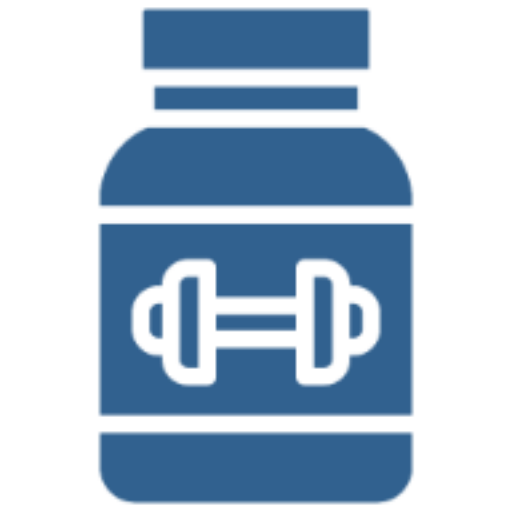Proteins
Your body needs protein to build and repair tissue. Though protein is thought of as a supplement that will only help male bodybuilders who are looking to gain some serious weight, eating the right kind can help people with very different fitness goals.
The body needs protein to build and repair tissue. This is important because exercise causes damage to your muscle tissue that is repaired during rest. Without an adequate amount of protein, the recovery process wouldn’t work properly leaving you weak. Everyone from long distance runners to bodybuilders and even the average exerciser needs protein. Protein isn’t merely for those looking to add serious size.
Amino Acids
Protein is made up of amino acids. There are two types of amino acids: essential and non-essential. The body has the ability to make some of the amino acids but must get the others from food and supplement sources. If the body can make a certain amino acid, it is called a non-essential amino acid (because the body doesn’t need to get it from an outside source). If the body can’t make a certain amino acid, it is called an essential amino acid (because the body needs it from outside sources).
All proteins are made up of different amino acids. Based on a protein’s amino acid makeup, it is either a complete or incomplete protein. A complete protein is made up of at least all of the essential amino acids while an incomplete protein lacks one or more of the essential amino acids.
To build new tissues or repair damaged ones, the body needs access to all of the essential amino acids (since it can’t make them on its own). This doesn’t necessarily mean that incomplete proteins are worthless in your diet. Incomplete proteins from a wide variety of foods can give your body access to all of the essential amino acids. Complete proteins generally come from animal sources while incomplete proteins are generally found in non-animal foods.
Sources of Protein
Complete protein comes mainly from animal sources. The problem is that many animal sources of foods are high in unhealthy, saturated fats. Eating protein from healthy foods will allow you to maintain your overall health and give your body the nutrients it needs to properly recover from a workout.
Good animal sources of complete protein include those that are low in fat: chicken, turkey, seafood, some cuts of beef, egg whites and low fat or fat free dairy products. Soy protein is the only non-animal complete protein.
Incomplete protein comes mainly from non-animal, vegetable sources. These proteins are found in healthy foods but are lacking in one or more of the essential amino acids. Having a diet that incorporates a wide variety of incomplete proteins will give your body enough essential amino acids to help you build and repair tissue. Sources of incomplete proteins include vegetables, nuts, beans, legumes, rice, bread and pasta.
Timing of Protein Intake
Your protein intake should be spaced throughout the day with an emphasis on the morning, post workout and before bed. When you wake up, your body has been in a state of fasting for eight or more hours. Eating a breakfast that contains protein will allow your body to get into an anabolic (building up muscle tissue) rather than a catabolic (breaking down muscle tissue) state. This will help you preserve and grow muscle mass. Avoiding Catabolic States
You also need protein immediately following a workout. After a workout, your body begins the recovery process. Its first priority is to restore depleted energy levels. Next, it begins repairing damaged tissue with protein. After a workout, it’s best to give your body nutrients in a form that is quickly digested and absorbed so that the recovery process can begin. Mix simple carbs with a protein supplement to give your body a mix of the nutrients it needs to start the recovery process promptly.
Protein also plays an important role at night. Even though popular myths attribute nighttime eating to fat gain, eating at night can help you preserve and build muscle. Overnight, your body enters into a period of fasting that can last eight or more hours. Periods of fasting are detrimental to muscle as your body can start breaking muscle tissue down for energy. On top of fasting, your body still has energy needs at night. A big chunk of the recovery process (fixing damage from a workout) happens while you sleep. If your body doesn’t have an adequate supply of nutrients, you won’t get stronger. Eating protein before bed can help give your body a steady supply of nutrients that it needs to maintain muscle tissue.
Amount of Protein
The amount of protein you need varies from a minimum of about 0.4grams of protein per pound of body weight up to about 20% of your daily calorie intake. Here’s an example:
- 160 lbs
- 2,500 calories per day
- Minimum: 0.4g x 160lbs = 64 grams of protein
- Maximum: 2,500 calories per day x 20% = 500 calories of protein
- 500 calories of protein / 4 (protein has 4 calories per gram) = 125 grams of protein
In the example above, someone who weighs 160 pounds and eats 2,500 calories per day would need between 64 and 125 grams of protein per day. Your protein needs increase with the amount of physical activity you perform. A power lifter or athlete who runs longs distances needs more protein to recover from a workout than a person that exercises three times a week.
The Bottom Line
Protein alone does not build muscle. Your body only builds muscle mass in response to a consistent stimulus (working out). The body uses protein to build muscle but does not build muscle in response to an increased supply of protein. Simply eating more protein (an increase in calorie intake) will only result in fat gain.











